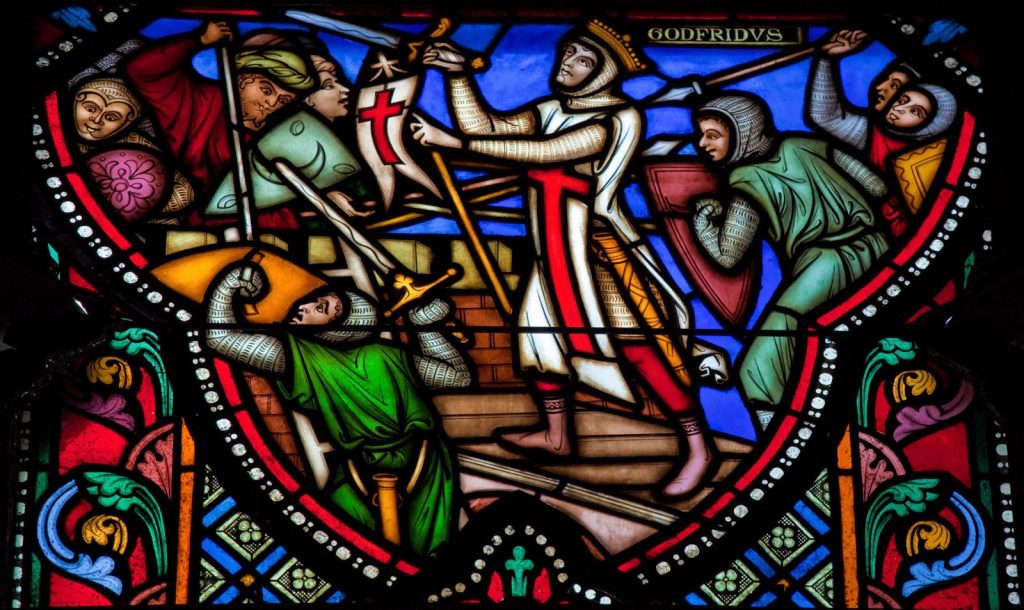
A few years ago, I worked through The God Delusion by Richard Dawkins, a popular atheist thinker who argued against a theistic worldview. I chose to read the book because I believe that it is important for Christians (and anyone, for that matter) to engage with viewpoints other than our own. Although I did not find the main thrust of his arguments very convincing, I still wrote about the experience because I found it to be quite formative to my understanding of atheism.
Standing tall next to Richard Dawkins in the world of “New Atheism” is another man by the name of Sam Harris. I had the chance to read his popular title The End of Faith, where he argues that religion, particularly Western religion, is foolish to believe, harmful to society, and needs to end.
My purpose in writing a review of this book is not to bash Harris or pretend like I know everything. But I hope to offer some constructive dialogue in contribution to the very important subject of religion in our world. I’m using the print edition from 2005.
Blind Faith
One thing I noticed right away with Harris’s evaluation of faith is that it is blind, without reason, and fundamentally opposed to rationality.
This is a common objection to theism which atheists often point out, but I was a little surprised to find Harris talking as though the vast majority of all Western religious people believe this way. “On this subject,” writes Harris, “liberals and conservatives have reached a rare consensus: religious beliefs are simply beyond the scope of rational discourse.” (Page 13). And further, “How is it that, in this one area of our lives, we have convinced ourselves that our beliefs about the world can float entirely free of reason and evidence?” (Page 17).
Clearly, Harris has a problem with blind faith.
So do I.
And so does almost any thoughtful Christian who recognizes the use/endorsement of persuasive rationality by Paul (Acts 18:28), Peter (1 Peter 3:15), John (1 John 1:1-3), and Jesus (Matthew 22:23-32).
To be fair, Harris does recognize that some religious people might try to use rationality to come to conclusions about the existence of God. He says “This is probably a conclusion that many religious believers will want to resist” (Page 63).
I can’t help but sense that Harris is also resisting this conclusion. As an atheist, he doesn’t seek to address it, at least not so much in this one book I read. In doing so he misses a great number of us. I recognize that rational faith is not his focus (see Page 65), but if he’s going to address mainstream Christianity, I think it ought to be.
Trivial Squabble
Another common thread in Harris’s thinking is that religious people debate about things which seem so trivial to him.
In order to make his point, he asks us to imagine if humanity lost all of its knowledge and begun the work to reclaim it all over again. Then on page 23, he asks “When in this process of reclaiming our humanity will it be important to know that Jesus was born a virgin? Or that he resurrected?” What about the knowledge that Jesus’ miraculous birth shows that he is God? What about the knowledge that the resurrection of Jesus was a victory over death itself rendering salvation to everyone who believes in his name?
Instead, Harris thinks that our message is as trivial as “rival interpretations of Star Was or Windows 98” (Page 36).
The difference is that no interpretation of Han Solo claims that he died for your sins! If the message of Jesus is true, wouldn’t it be important information worth caring about?
The Seeds of Chaos
A large portion of The End of Faith is dedicated to showing that religion, particularly Christianity and Islam, has created great evil.
One prime example he gives for Christianity is that they are to blame for the Jews who were killed at the holocaust. He doesn’t claim that Hitler was a devout Christian who was simply living from his religious convictions (Harris doesn’t go there, although some have tried). Rather, he argues that it was the Christian hatred toward Jews which influenced the German culture at large, setting the stage for Hitler’s hate speech to gain momentum (See page 100-101).
This is not a fair assessment. Many influences poured into the making of Hitler’s tyranny, influences which Harris has chosen to ignore. Listen to the words of Ravi Zacharias in response to this argument:
Has Harris read about Hitler’s own spiritual journey? Has he read anything about Hitler’s dabbling in the occult? Is he aware that Hitler personally presented the writing of Nietzsche to Stalin and Mussolini?
Is he ignoring the fact that others who were not Jewish were also slaughtered by Hitler?… Does he recall Hitler’s words inscribed over one of the gas ovens in Auschwitz – “I want to raise a generation of young people devoid of a conscience, imperious, relentless and cruel”?
Does he know that Hitler’s point was that the destruction of the weak is a good thing for the survival of the strong and that “nature intended it that way,” as is taught by atheistic evolution’s tenet of natural selection?… None of these signs of the Holocaust point back to Christianity… (Zacharias, The End of Reason, 51-52.)
From reading The End of Faith, you get the sense that the deck has been stacked against religion. When something is unthinkably evil, only faith could have done it. (see Page 31).
The non-religious evils like the reign of Stalin is “little more than a political religion” (Page 79). Even religious “moderates” are dangerous to society for their inability to address extremism (See Pages 14-15, 20). And although Harris agrees that “there are millions of people whose faith moves them to perform extraordinary acts of self-sacrifice for the benefit if others,” he quickly reminds us that “there are far better reasons for self-sacrifice than those that religion provides… By contrast, the most monstrous crimes against humanity have invariably been inspired by unjustified belief.” (Pages 78-79).
Why aren’t these swords of criticism wielded against Harris’s own beliefs? “How conveniently the atheist plays word games,” writes Zacharias, “When it is Stalin or Pol Pot who does the slaughtering, it is because they are deranged or irrational ideologues; their atheism has nothing to do with their actions. But when a Holocaust is engendered by an ideologue, it is the culmination of four hundred years of Christian intolerance for the Jew.” (Zacharias, 52.)
I don’t wish to defend actions done by religious people which actually were evil. There are plenty of examples, and it is horrendous and embarrassing.
But for Christianity, the murder of Muslims in the crusades or the burning of witches and heretics in the medieval times (See chapter 3) are in violation of what it means to be a follower of Christ!
They go directly against the sacredness of human life and the mission of Jesus that all may be led to repentance for the forgiveness of their sins!
Evil may attach itself to Christianity, and even find cover under the disguise of “religious piety,” but it will never belong there. You cannot blame a system of belief based off its malpractice.
The Science of Good and Evil
Throughout the entire book, Harris evaluates the history of religion as he makes moral judgments. This is thin ice for an atheist because a worldview without God does not offer a foundation for making universal claims to good and evil.
For a Christian, evil is a violation of the sacred purpose for which God intended in something, and it goes against the very nature of who God is. But if everything is merely atoms and chemicals, and if life is only a product of evolutionary processes, what makes something good or evil? Why is killing worse than giving? Why is love better than hatred?
If Harris is to stand on his argument, he absolutely needs to provide a basis by which he can make judgments on the actions of other people. How does he do it?
The question is addressed in chapter 6, The Science of Good and Evil. The proposed solution is offered right at the beginning of the chapter: “A rational approach to ethics becomes possible once we realize that questions of right and wrong are really questions about the happiness and suffering of sentient creatures. If we are in a position to affect the happiness or suffering of others, we have ethical responsibilities toward them” (Pages 171-172).
A response like this doesn’t get at the problem. Why should we equate morality with happiness? Why are we responsible to affect the happiness and suffering of someone else? What if a rapist experiences more happiness raping someone than the sadness in the one being raped?
Harris never really addresses these deeper issues. Instead, he goes on to talk about how we don’t need religion as motivation for doing good… but how did we get on the topic of moral “motivation?” The problem with atheism is not that they have no motivation to do good. The problem is that goodness is objectively real only in a theistic worldview, and they are trying to wield it as against a theistic worldview.
Science cannot answer questions of morality. It will never get us any closer. That’s not what science does for us.
We might learn how to measure chemicals of happiness and sadness in the brain, but science will never tell us why one chemical in the brain matters more than another chemical.
If atheists are to defend themselves against this moral dilemma presented by theists like myself, they must not get sidetracked with conversations of moral motivation or unsubstantiated ethical theories.
Final Thoughts
For a time, I was somewhat of an “athiest-phobe,” thinking that all atheists were just angry, disturbed souls with the power of Hell to drag people under.
This is far from the truth.
Just like me, Sam Harris is concerned about people and he wants what’s best for them. He writes out of great concern for the harm that religion has done in our history, and with the conviction that society would be far better off without it. I wholeheartedly believe that his concerns are misplaced, but that doesn’t make him any more distant from God’s love for every lost soul.
No doubt, Harris has been beaten over the head by many Christians who forgot that our battle is not against flesh and blood (See Eph. 6:12).
But if we live with with the love of tangible Christ and the knowledge of the truthfulness of God’s Word, books like these would be much harder to write and much harder to sell.
If you are reading this post, please pray for Sam Harris and all those who have never tasted the beauty and truth of God’s amazing love.



